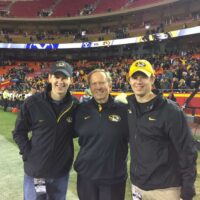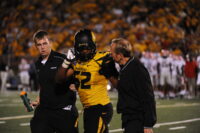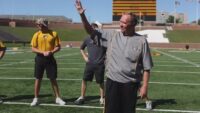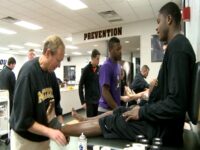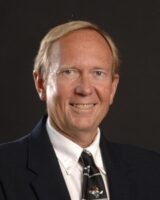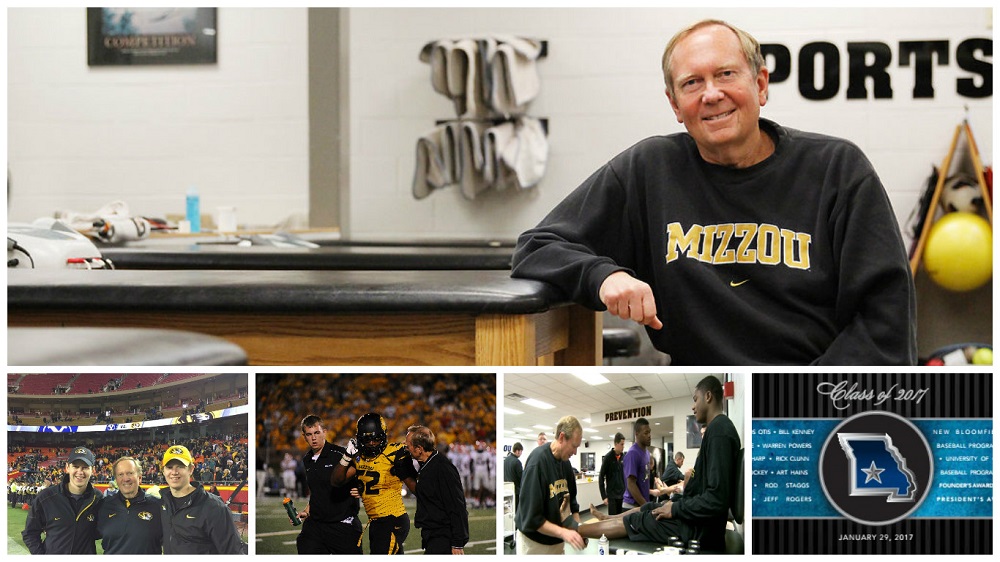Inductees
Rex Sharp
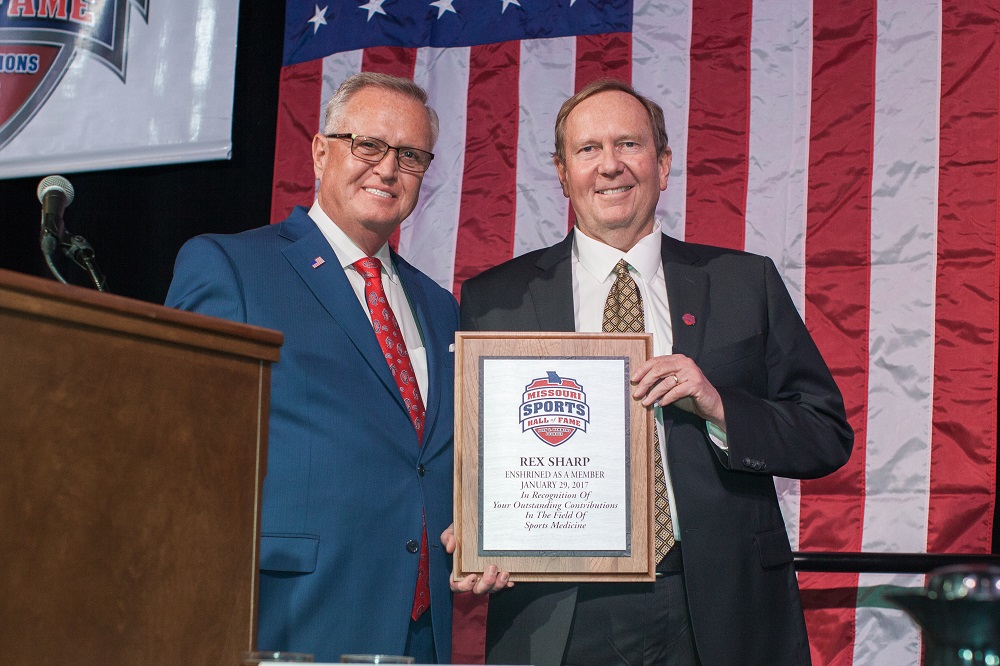
Those who work behind the scenes in sports know all too well that you can make a huge difference. Just ask Rex Sharp. Back in the spring of 1997, less than a year after being hired as the head athletic trainer for the University of Missouri, he had a request for the team doctor – and changed history.
The story goes that Sharp wanted to accelerate the rehab of then-linebacker Barry Odom’s surgically repaired knee to four months, up from the doc’s customary, nine-month timeline. Otherwise, the Football Tigers would be thin at linebacker entering the season.
“Barry Odom worked his tail off and, on August 3rd, Dr. (Pat) Smith cleared him to play,” Sharp said. “I give Dr. Smith a tremendous amount of credit. He was willing to think outside the proverbial box. It’s paid huge dividends for our student-athletes at Missouri.”
Sharp’s influence only grew from there, with the athletic training staff enjoying many more successes, and it’s why the Missouri Sports Hall of Fame is proud to induct Sharp with the Class of 2017.
Sharp now directs the Dr. Glenn L. McElroy M.D. Sports Medicine Center, Mizzou’s primary treatment and rehabilitation facility, which handles 20 Mizzou sports. The role means overseeing a staff of 17 athletic trainers and almost 80 undergraduate athletic training students. Together, they provide injury recognition, management of injuries and injury rehabilitation.
And that is only the short version of Sharp’s work.
In 2011, Mizzou gave him the title of Associate Athletic Director/Sports Medicine. Even better, a year later – and after more than a decade of Sharp’s efforts urging the university to offer it – Mizzou approved a new undergraduate athletic training education program.
“It’s really cool,” Sharp said, noting longtime friend and former Northwest Missouri State professor Dave (DC) Colt, Ed.D., heads the academic program. “Our students have an opportunity to learn from him in a didactic setting, and they come in here and work with us in the clinical setting. I love working with the young professionals.”
For Sharp, the Show-Me State – and specifically Truman State University in Kirksville — played an important role early in his career. He was the head athletic trainer at Truman State only from 1983 to 1985, but Sharp transformed the role, showing its importance with his dedication. Before his arrival, for instance, the baseball coach had been “the taper” for football games.
“I’ve never forgotten that experience. They didn’t have anything in Kirksville. When I walked into my first athletic training room, I had a filing cabinet and a telephone,” said Sharp, noting its lack of athletic tape and padded tables.
Sharp previously had turned down an opportunity to serve as an assistant athletic trainer at the University of Oregon. Up to that point, he had been a biology teacher and athletic trainer of his alma mater in Indiana, New Albany High School. But because he wished to have a greater impact on the training of athletes, Sharp successfully pursued a master’s degree in exercise physiology at Michigan Tech University.
The Truman State role then set him up for a great 11-year run as the head athletic trainer at Ball State University, where he primarily oversaw the football program.
Among his success stories at Mizzou are wide receiver Jeremy Maclin and Henry Josey.
Maclin underwent surgery August 4 of his freshman redshirt season and was running 100-yard sprints by October. In the season-opener the next year, in 2007, Maclin returned a punt for a touchdown.
Josey, who blew out a knee late in the 2011 season, had a big 2013 season that ended with him named as the offensive player of the game in the Cotton Bowl.
It’s probably no wonder, then, that Sharp has an enormous reach at Mizzou and beyond. He is an adjunct faculty and teaches two courses in the Department of Nutritional Sciences. He also served an eight-year tenure as one of 10 collegiate athletic trainers in the nation on the prestigious College and University Athletic Trainers’ Committee, and was Chairman of the Big 12 Conference Medical Aspects of Sport Committee.
Just as notable, Sharp and his staff were recognized (in 2000 and 2011) as the Big 12 Conference Athletic Training Staff of the Year.
Overall, it’s a job that has meant long weeks, which is why Sharp is quick to point out the tremendous support of his wife, Eileen, for raising their children, Audrey and twins Jered and Adam.
“I’m very fortunate,” Sharp said. “It took a lot of breaks and a lot of people have contributed to my success.”
